Law 8500: Exclusion Clause and Negligence in Parking Contracts
VerifiedAdded on 2023/01/17
|8
|1804
|58
Homework Assignment
AI Summary
This assignment analyzes a scenario involving a parking contract and the enforceability of an exclusion clause. The student addresses whether the parking operator can rely on the exclusion clause to avoid liability for a stolen luxury car. The analysis considers whether the exclusion clause was properly communicated to the customer, the impact of the small font size of the clause, and the role of the parking staff's negligence. The student applies relevant legal principles, including the case of Thornton v Shoe Lane Parking, and explores alternative viewpoints to reach a conclusion on the liability of the parking operator. The assignment also examines the customer's contributory negligence in leaving the car keys inside the vehicle. The solution utilizes the ILAC method, identifying issues, applying the law, analyzing the application, and concluding with a reasoned judgment on the case.
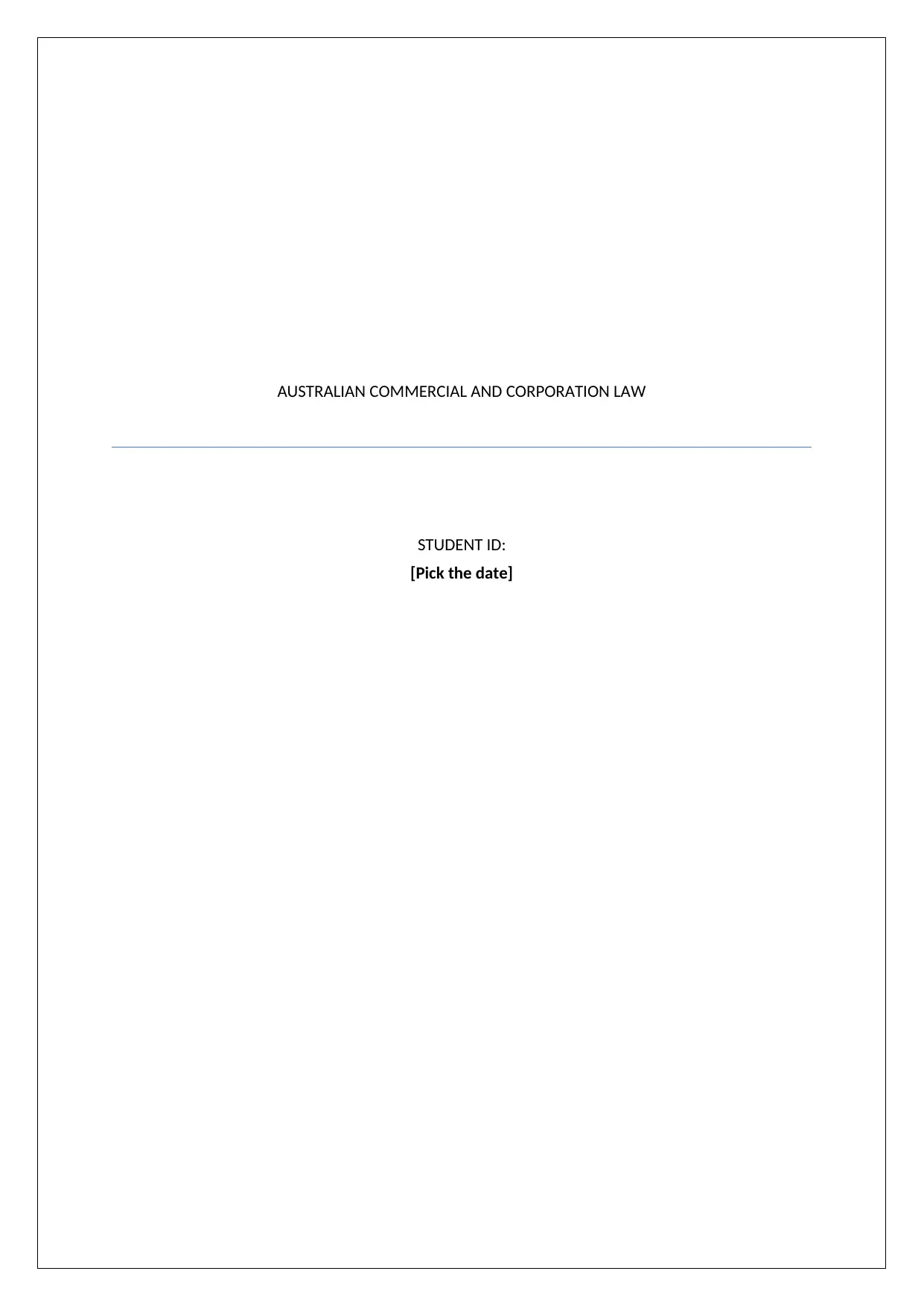
AUSTRALIAN COMMERCIAL AND CORPORATION LAW
STUDENT ID:
[Pick the date]
STUDENT ID:
[Pick the date]
Paraphrase This Document
Need a fresh take? Get an instant paraphrase of this document with our AI Paraphraser
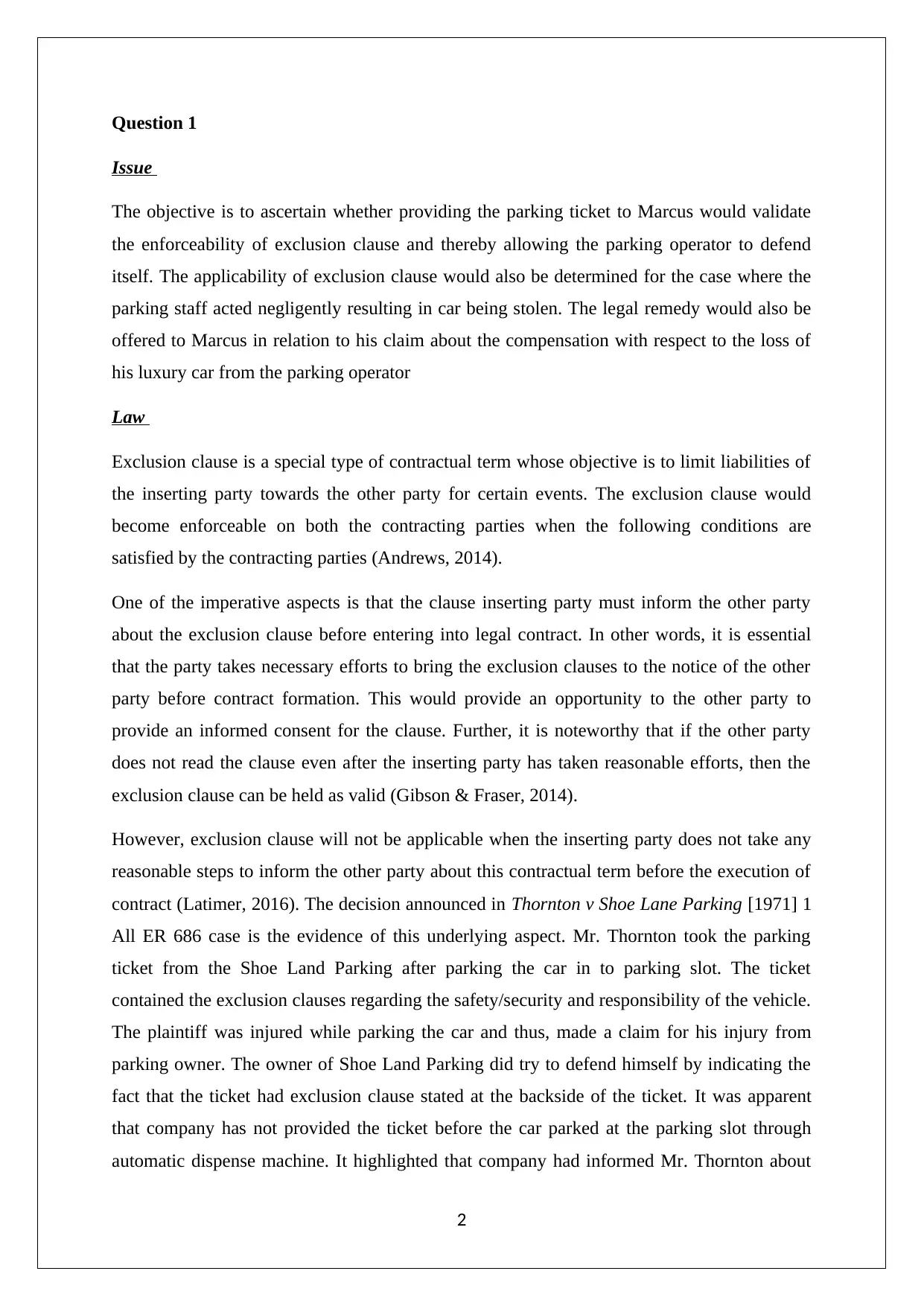
Question 1
Issue
The objective is to ascertain whether providing the parking ticket to Marcus would validate
the enforceability of exclusion clause and thereby allowing the parking operator to defend
itself. The applicability of exclusion clause would also be determined for the case where the
parking staff acted negligently resulting in car being stolen. The legal remedy would also be
offered to Marcus in relation to his claim about the compensation with respect to the loss of
his luxury car from the parking operator
Law
Exclusion clause is a special type of contractual term whose objective is to limit liabilities of
the inserting party towards the other party for certain events. The exclusion clause would
become enforceable on both the contracting parties when the following conditions are
satisfied by the contracting parties (Andrews, 2014).
One of the imperative aspects is that the clause inserting party must inform the other party
about the exclusion clause before entering into legal contract. In other words, it is essential
that the party takes necessary efforts to bring the exclusion clauses to the notice of the other
party before contract formation. This would provide an opportunity to the other party to
provide an informed consent for the clause. Further, it is noteworthy that if the other party
does not read the clause even after the inserting party has taken reasonable efforts, then the
exclusion clause can be held as valid (Gibson & Fraser, 2014).
However, exclusion clause will not be applicable when the inserting party does not take any
reasonable steps to inform the other party about this contractual term before the execution of
contract (Latimer, 2016). The decision announced in Thornton v Shoe Lane Parking [1971] 1
All ER 686 case is the evidence of this underlying aspect. Mr. Thornton took the parking
ticket from the Shoe Land Parking after parking the car in to parking slot. The ticket
contained the exclusion clauses regarding the safety/security and responsibility of the vehicle.
The plaintiff was injured while parking the car and thus, made a claim for his injury from
parking owner. The owner of Shoe Land Parking did try to defend himself by indicating the
fact that the ticket had exclusion clause stated at the backside of the ticket. It was apparent
that company has not provided the ticket before the car parked at the parking slot through
automatic dispense machine. It highlighted that company had informed Mr. Thornton about
2
Issue
The objective is to ascertain whether providing the parking ticket to Marcus would validate
the enforceability of exclusion clause and thereby allowing the parking operator to defend
itself. The applicability of exclusion clause would also be determined for the case where the
parking staff acted negligently resulting in car being stolen. The legal remedy would also be
offered to Marcus in relation to his claim about the compensation with respect to the loss of
his luxury car from the parking operator
Law
Exclusion clause is a special type of contractual term whose objective is to limit liabilities of
the inserting party towards the other party for certain events. The exclusion clause would
become enforceable on both the contracting parties when the following conditions are
satisfied by the contracting parties (Andrews, 2014).
One of the imperative aspects is that the clause inserting party must inform the other party
about the exclusion clause before entering into legal contract. In other words, it is essential
that the party takes necessary efforts to bring the exclusion clauses to the notice of the other
party before contract formation. This would provide an opportunity to the other party to
provide an informed consent for the clause. Further, it is noteworthy that if the other party
does not read the clause even after the inserting party has taken reasonable efforts, then the
exclusion clause can be held as valid (Gibson & Fraser, 2014).
However, exclusion clause will not be applicable when the inserting party does not take any
reasonable steps to inform the other party about this contractual term before the execution of
contract (Latimer, 2016). The decision announced in Thornton v Shoe Lane Parking [1971] 1
All ER 686 case is the evidence of this underlying aspect. Mr. Thornton took the parking
ticket from the Shoe Land Parking after parking the car in to parking slot. The ticket
contained the exclusion clauses regarding the safety/security and responsibility of the vehicle.
The plaintiff was injured while parking the car and thus, made a claim for his injury from
parking owner. The owner of Shoe Land Parking did try to defend himself by indicating the
fact that the ticket had exclusion clause stated at the backside of the ticket. It was apparent
that company has not provided the ticket before the car parked at the parking slot through
automatic dispense machine. It highlighted that company had informed Mr. Thornton about
2
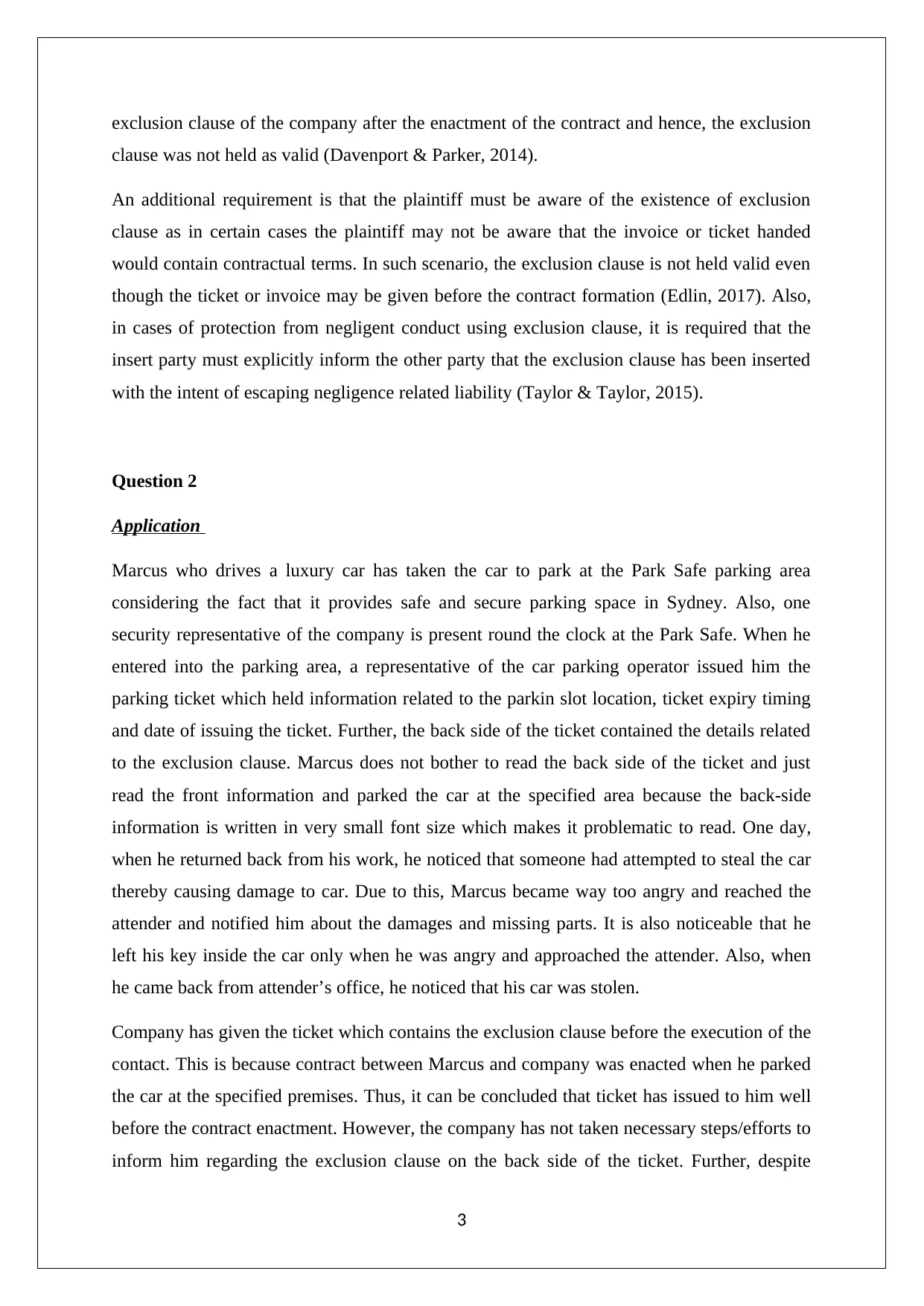
exclusion clause of the company after the enactment of the contract and hence, the exclusion
clause was not held as valid (Davenport & Parker, 2014).
An additional requirement is that the plaintiff must be aware of the existence of exclusion
clause as in certain cases the plaintiff may not be aware that the invoice or ticket handed
would contain contractual terms. In such scenario, the exclusion clause is not held valid even
though the ticket or invoice may be given before the contract formation (Edlin, 2017). Also,
in cases of protection from negligent conduct using exclusion clause, it is required that the
insert party must explicitly inform the other party that the exclusion clause has been inserted
with the intent of escaping negligence related liability (Taylor & Taylor, 2015).
Question 2
Application
Marcus who drives a luxury car has taken the car to park at the Park Safe parking area
considering the fact that it provides safe and secure parking space in Sydney. Also, one
security representative of the company is present round the clock at the Park Safe. When he
entered into the parking area, a representative of the car parking operator issued him the
parking ticket which held information related to the parkin slot location, ticket expiry timing
and date of issuing the ticket. Further, the back side of the ticket contained the details related
to the exclusion clause. Marcus does not bother to read the back side of the ticket and just
read the front information and parked the car at the specified area because the back-side
information is written in very small font size which makes it problematic to read. One day,
when he returned back from his work, he noticed that someone had attempted to steal the car
thereby causing damage to car. Due to this, Marcus became way too angry and reached the
attender and notified him about the damages and missing parts. It is also noticeable that he
left his key inside the car only when he was angry and approached the attender. Also, when
he came back from attender’s office, he noticed that his car was stolen.
Company has given the ticket which contains the exclusion clause before the execution of the
contact. This is because contract between Marcus and company was enacted when he parked
the car at the specified premises. Thus, it can be concluded that ticket has issued to him well
before the contract enactment. However, the company has not taken necessary steps/efforts to
inform him regarding the exclusion clause on the back side of the ticket. Further, despite
3
clause was not held as valid (Davenport & Parker, 2014).
An additional requirement is that the plaintiff must be aware of the existence of exclusion
clause as in certain cases the plaintiff may not be aware that the invoice or ticket handed
would contain contractual terms. In such scenario, the exclusion clause is not held valid even
though the ticket or invoice may be given before the contract formation (Edlin, 2017). Also,
in cases of protection from negligent conduct using exclusion clause, it is required that the
insert party must explicitly inform the other party that the exclusion clause has been inserted
with the intent of escaping negligence related liability (Taylor & Taylor, 2015).
Question 2
Application
Marcus who drives a luxury car has taken the car to park at the Park Safe parking area
considering the fact that it provides safe and secure parking space in Sydney. Also, one
security representative of the company is present round the clock at the Park Safe. When he
entered into the parking area, a representative of the car parking operator issued him the
parking ticket which held information related to the parkin slot location, ticket expiry timing
and date of issuing the ticket. Further, the back side of the ticket contained the details related
to the exclusion clause. Marcus does not bother to read the back side of the ticket and just
read the front information and parked the car at the specified area because the back-side
information is written in very small font size which makes it problematic to read. One day,
when he returned back from his work, he noticed that someone had attempted to steal the car
thereby causing damage to car. Due to this, Marcus became way too angry and reached the
attender and notified him about the damages and missing parts. It is also noticeable that he
left his key inside the car only when he was angry and approached the attender. Also, when
he came back from attender’s office, he noticed that his car was stolen.
Company has given the ticket which contains the exclusion clause before the execution of the
contact. This is because contract between Marcus and company was enacted when he parked
the car at the specified premises. Thus, it can be concluded that ticket has issued to him well
before the contract enactment. However, the company has not taken necessary steps/efforts to
inform him regarding the exclusion clause on the back side of the ticket. Further, despite
3
⊘ This is a preview!⊘
Do you want full access?
Subscribe today to unlock all pages.

Trusted by 1+ million students worldwide
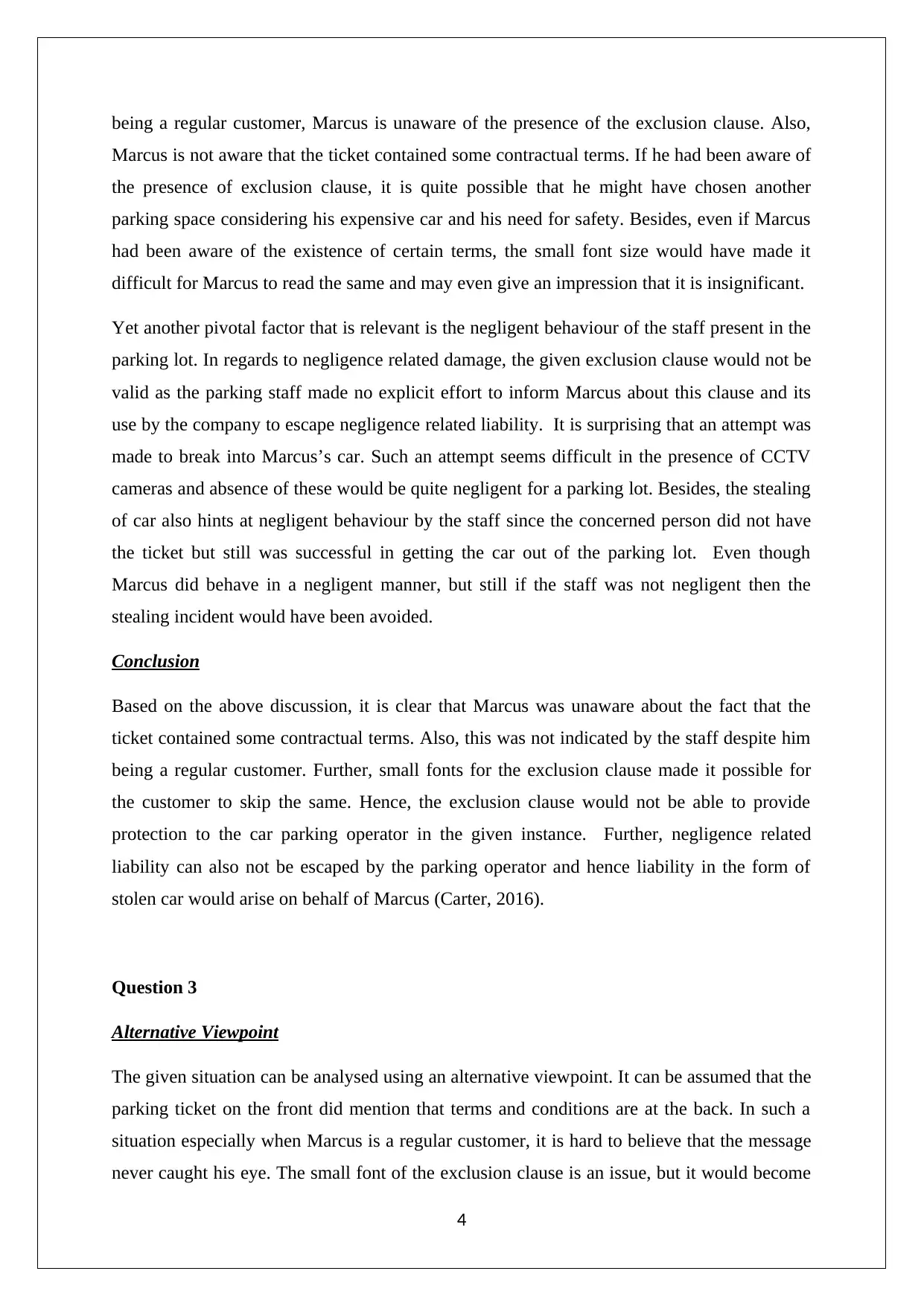
being a regular customer, Marcus is unaware of the presence of the exclusion clause. Also,
Marcus is not aware that the ticket contained some contractual terms. If he had been aware of
the presence of exclusion clause, it is quite possible that he might have chosen another
parking space considering his expensive car and his need for safety. Besides, even if Marcus
had been aware of the existence of certain terms, the small font size would have made it
difficult for Marcus to read the same and may even give an impression that it is insignificant.
Yet another pivotal factor that is relevant is the negligent behaviour of the staff present in the
parking lot. In regards to negligence related damage, the given exclusion clause would not be
valid as the parking staff made no explicit effort to inform Marcus about this clause and its
use by the company to escape negligence related liability. It is surprising that an attempt was
made to break into Marcus’s car. Such an attempt seems difficult in the presence of CCTV
cameras and absence of these would be quite negligent for a parking lot. Besides, the stealing
of car also hints at negligent behaviour by the staff since the concerned person did not have
the ticket but still was successful in getting the car out of the parking lot. Even though
Marcus did behave in a negligent manner, but still if the staff was not negligent then the
stealing incident would have been avoided.
Conclusion
Based on the above discussion, it is clear that Marcus was unaware about the fact that the
ticket contained some contractual terms. Also, this was not indicated by the staff despite him
being a regular customer. Further, small fonts for the exclusion clause made it possible for
the customer to skip the same. Hence, the exclusion clause would not be able to provide
protection to the car parking operator in the given instance. Further, negligence related
liability can also not be escaped by the parking operator and hence liability in the form of
stolen car would arise on behalf of Marcus (Carter, 2016).
Question 3
Alternative Viewpoint
The given situation can be analysed using an alternative viewpoint. It can be assumed that the
parking ticket on the front did mention that terms and conditions are at the back. In such a
situation especially when Marcus is a regular customer, it is hard to believe that the message
never caught his eye. The small font of the exclusion clause is an issue, but it would become
4
Marcus is not aware that the ticket contained some contractual terms. If he had been aware of
the presence of exclusion clause, it is quite possible that he might have chosen another
parking space considering his expensive car and his need for safety. Besides, even if Marcus
had been aware of the existence of certain terms, the small font size would have made it
difficult for Marcus to read the same and may even give an impression that it is insignificant.
Yet another pivotal factor that is relevant is the negligent behaviour of the staff present in the
parking lot. In regards to negligence related damage, the given exclusion clause would not be
valid as the parking staff made no explicit effort to inform Marcus about this clause and its
use by the company to escape negligence related liability. It is surprising that an attempt was
made to break into Marcus’s car. Such an attempt seems difficult in the presence of CCTV
cameras and absence of these would be quite negligent for a parking lot. Besides, the stealing
of car also hints at negligent behaviour by the staff since the concerned person did not have
the ticket but still was successful in getting the car out of the parking lot. Even though
Marcus did behave in a negligent manner, but still if the staff was not negligent then the
stealing incident would have been avoided.
Conclusion
Based on the above discussion, it is clear that Marcus was unaware about the fact that the
ticket contained some contractual terms. Also, this was not indicated by the staff despite him
being a regular customer. Further, small fonts for the exclusion clause made it possible for
the customer to skip the same. Hence, the exclusion clause would not be able to provide
protection to the car parking operator in the given instance. Further, negligence related
liability can also not be escaped by the parking operator and hence liability in the form of
stolen car would arise on behalf of Marcus (Carter, 2016).
Question 3
Alternative Viewpoint
The given situation can be analysed using an alternative viewpoint. It can be assumed that the
parking ticket on the front did mention that terms and conditions are at the back. In such a
situation especially when Marcus is a regular customer, it is hard to believe that the message
never caught his eye. The small font of the exclusion clause is an issue, but it would become
4
Paraphrase This Document
Need a fresh take? Get an instant paraphrase of this document with our AI Paraphraser
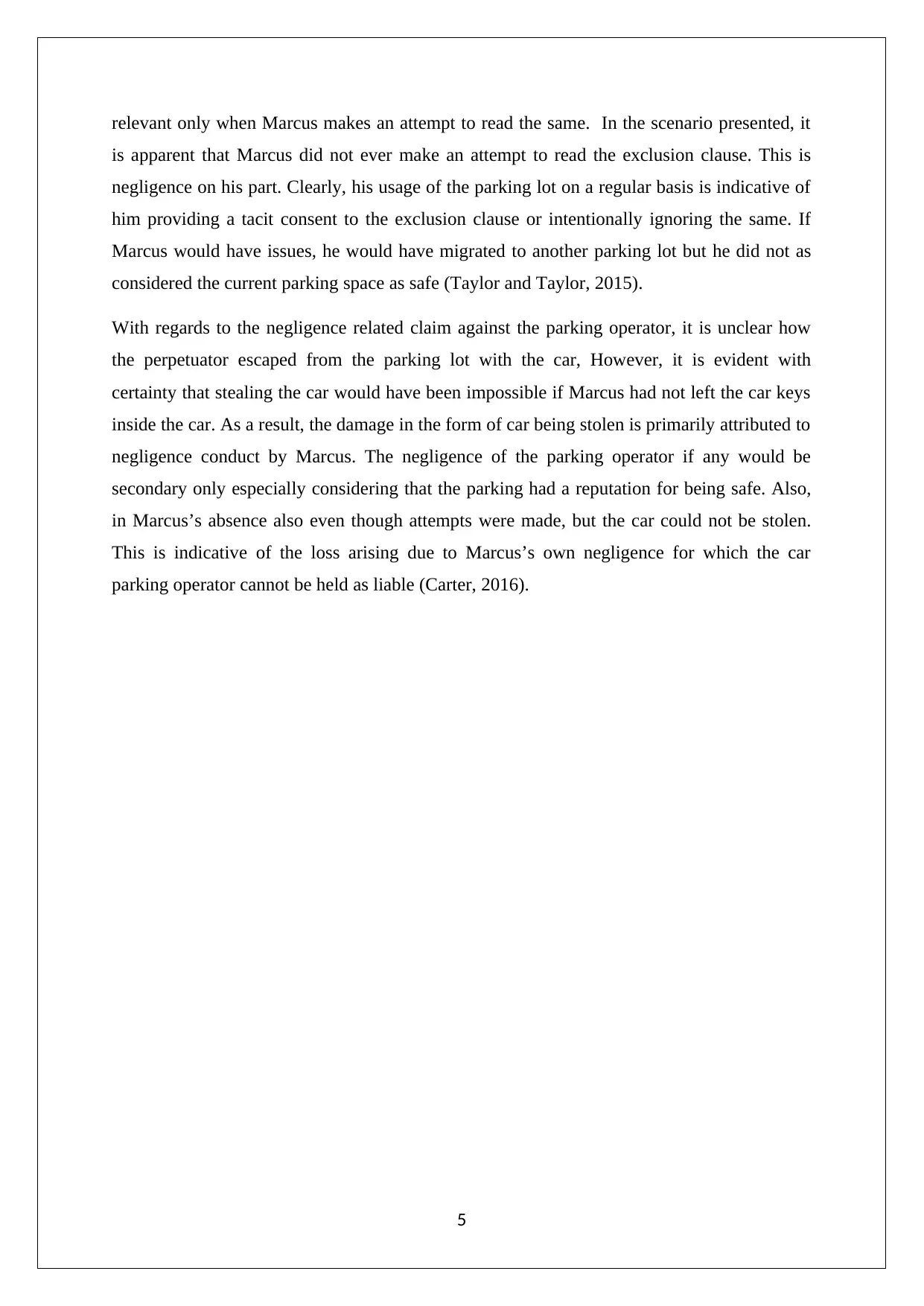
relevant only when Marcus makes an attempt to read the same. In the scenario presented, it
is apparent that Marcus did not ever make an attempt to read the exclusion clause. This is
negligence on his part. Clearly, his usage of the parking lot on a regular basis is indicative of
him providing a tacit consent to the exclusion clause or intentionally ignoring the same. If
Marcus would have issues, he would have migrated to another parking lot but he did not as
considered the current parking space as safe (Taylor and Taylor, 2015).
With regards to the negligence related claim against the parking operator, it is unclear how
the perpetuator escaped from the parking lot with the car, However, it is evident with
certainty that stealing the car would have been impossible if Marcus had not left the car keys
inside the car. As a result, the damage in the form of car being stolen is primarily attributed to
negligence conduct by Marcus. The negligence of the parking operator if any would be
secondary only especially considering that the parking had a reputation for being safe. Also,
in Marcus’s absence also even though attempts were made, but the car could not be stolen.
This is indicative of the loss arising due to Marcus’s own negligence for which the car
parking operator cannot be held as liable (Carter, 2016).
5
is apparent that Marcus did not ever make an attempt to read the exclusion clause. This is
negligence on his part. Clearly, his usage of the parking lot on a regular basis is indicative of
him providing a tacit consent to the exclusion clause or intentionally ignoring the same. If
Marcus would have issues, he would have migrated to another parking lot but he did not as
considered the current parking space as safe (Taylor and Taylor, 2015).
With regards to the negligence related claim against the parking operator, it is unclear how
the perpetuator escaped from the parking lot with the car, However, it is evident with
certainty that stealing the car would have been impossible if Marcus had not left the car keys
inside the car. As a result, the damage in the form of car being stolen is primarily attributed to
negligence conduct by Marcus. The negligence of the parking operator if any would be
secondary only especially considering that the parking had a reputation for being safe. Also,
in Marcus’s absence also even though attempts were made, but the car could not be stolen.
This is indicative of the loss arising due to Marcus’s own negligence for which the car
parking operator cannot be held as liable (Carter, 2016).
5
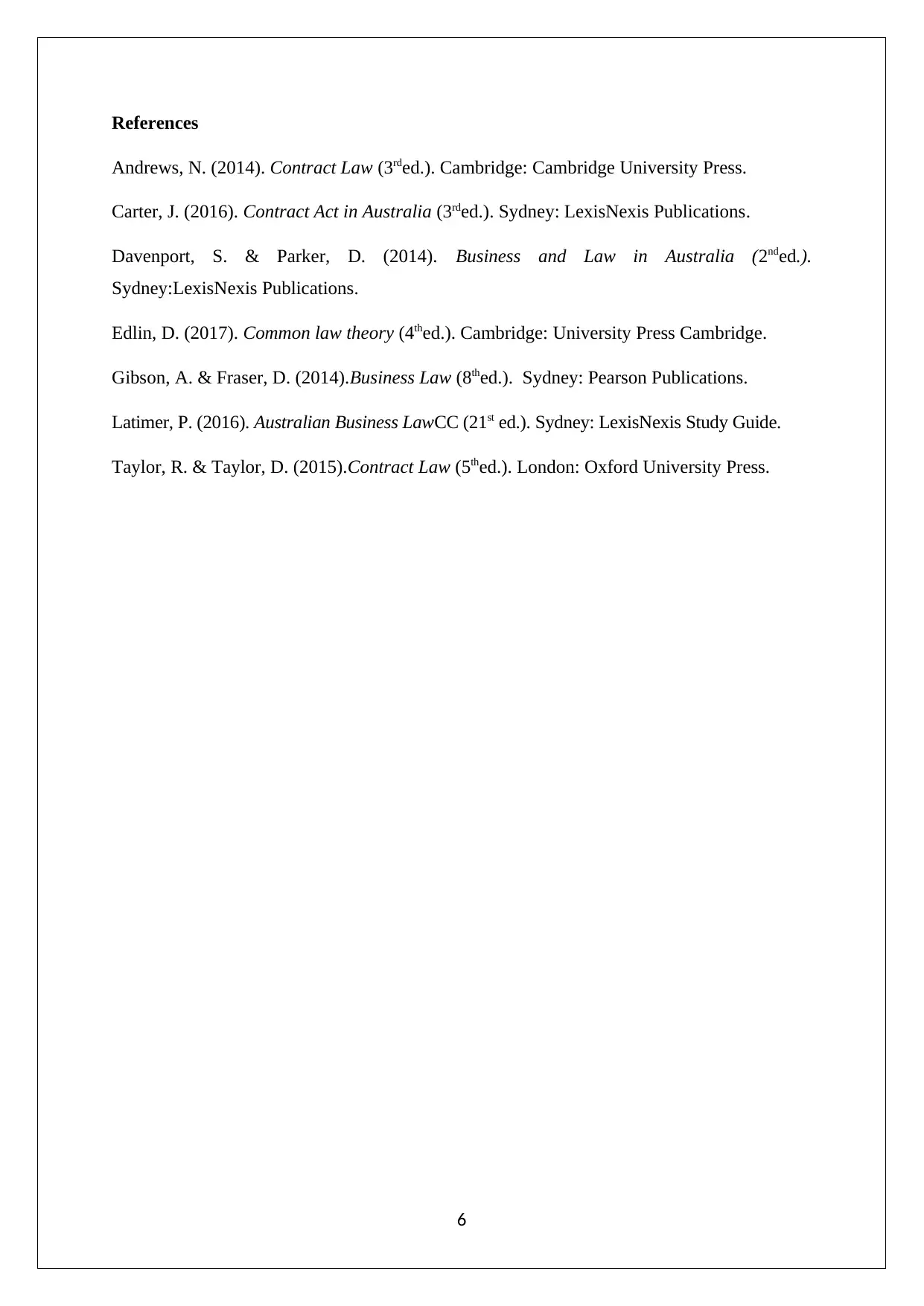
References
Andrews, N. (2014). Contract Law (3rded.). Cambridge: Cambridge University Press.
Carter, J. (2016). Contract Act in Australia (3rded.). Sydney: LexisNexis Publications.
Davenport, S. & Parker, D. (2014). Business and Law in Australia (2nded.).
Sydney:LexisNexis Publications.
Edlin, D. (2017). Common law theory (4thed.). Cambridge: University Press Cambridge.
Gibson, A. & Fraser, D. (2014).Business Law (8thed.). Sydney: Pearson Publications.
Latimer, P. (2016). Australian Business LawCC (21st ed.). Sydney: LexisNexis Study Guide.
Taylor, R. & Taylor, D. (2015).Contract Law (5thed.). London: Oxford University Press.
6
Andrews, N. (2014). Contract Law (3rded.). Cambridge: Cambridge University Press.
Carter, J. (2016). Contract Act in Australia (3rded.). Sydney: LexisNexis Publications.
Davenport, S. & Parker, D. (2014). Business and Law in Australia (2nded.).
Sydney:LexisNexis Publications.
Edlin, D. (2017). Common law theory (4thed.). Cambridge: University Press Cambridge.
Gibson, A. & Fraser, D. (2014).Business Law (8thed.). Sydney: Pearson Publications.
Latimer, P. (2016). Australian Business LawCC (21st ed.). Sydney: LexisNexis Study Guide.
Taylor, R. & Taylor, D. (2015).Contract Law (5thed.). London: Oxford University Press.
6
⊘ This is a preview!⊘
Do you want full access?
Subscribe today to unlock all pages.

Trusted by 1+ million students worldwide
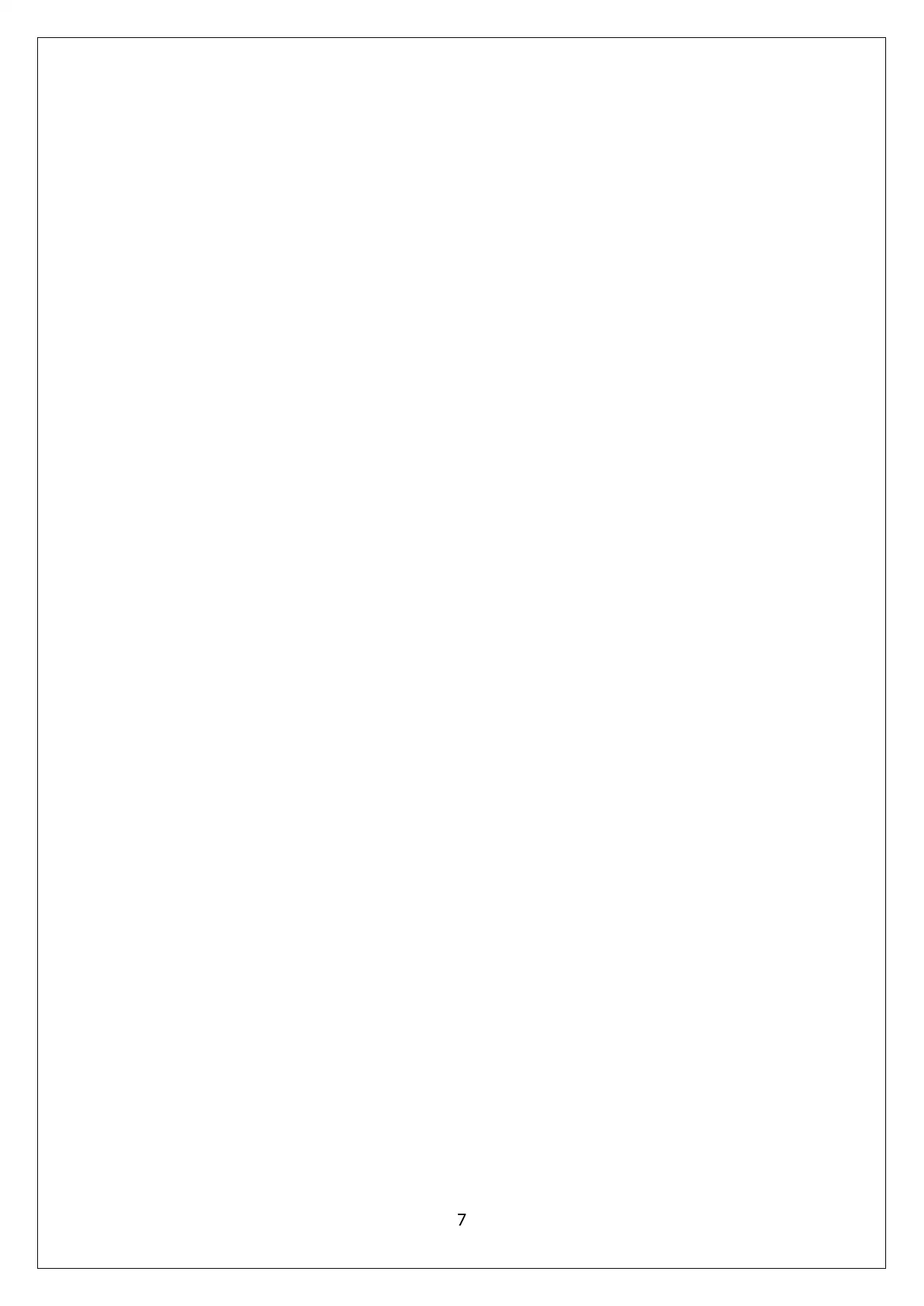
7
Paraphrase This Document
Need a fresh take? Get an instant paraphrase of this document with our AI Paraphraser
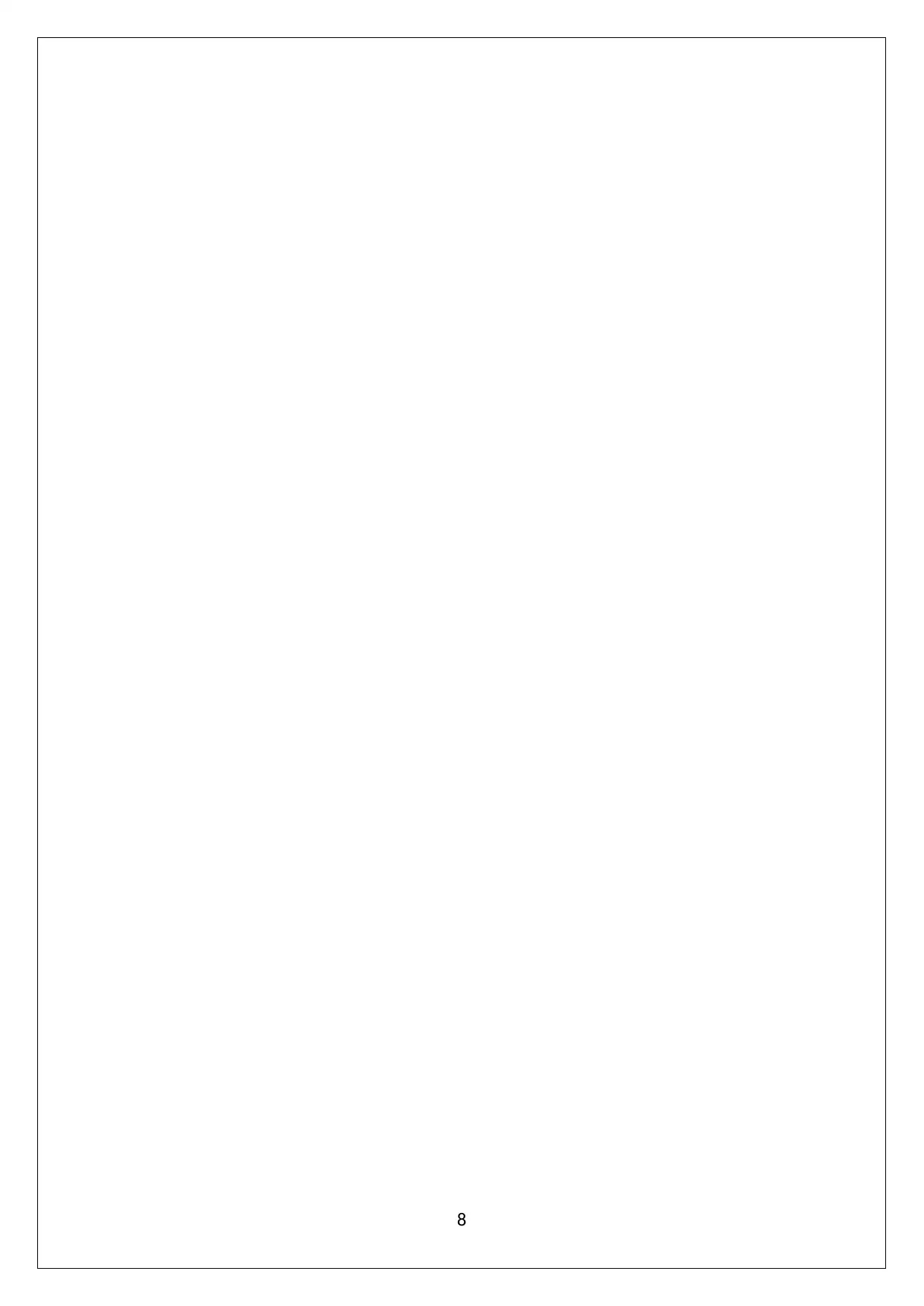
8
1 out of 8
Related Documents
Your All-in-One AI-Powered Toolkit for Academic Success.
+13062052269
info@desklib.com
Available 24*7 on WhatsApp / Email
![[object Object]](/_next/static/media/star-bottom.7253800d.svg)
Unlock your academic potential
Copyright © 2020–2026 A2Z Services. All Rights Reserved. Developed and managed by ZUCOL.





